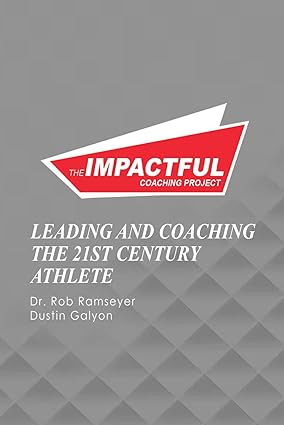Common Definitions
The Impactful Coaching Project
There are many interpretations of different approaches in coaching. Depending on where and who someone learned from, different words can mean different things to people. From our experience, utilizing a framework like the 3D Framework or our ICP terminology provides a great foundation to eliminate confusion and frustration.
We have a little bit of obsession at ICP in talking about toughness. We think alot of people get it wrong. However, if we aren’t clear on what that is and define it, people likely aren’t going to know what we are talking about.
Let’s take a brief moment and discuss the concept. There are varying perspectives on what this means in athletics. It could mean a distant, tyrant coach that yells at the athletes all the time and that makes them tough. This was a relatively accepted strategy of coaching to build toughness for a long time. In other cases, building toughness may simply meaning conditioning teams real hard. The pain of conditioning will build toughness and the coach believes it translates to the field. However, more likely is that very few coaches have had this concept defined. And, very few athletic directors that define it for their coaches.
They simply try to build toughness within their team based on how their coaches that coached them did it.
Here is what we think….
In his book about toughness, Steve Magness outlines research backed idea on how to build toughness[1]. He says it has two points:
1. Psychological Safety: This does not mean do whatever you want and believe whatever you want. Instead, it means that as long as you follow the standards of the team, your spot is safe. A team is a community and having the knowledge that you can screw up (not play well) and still be part of it is important. In fact, it can build more resilience.
2. The ability to get better: There needs to be a trust from the team that they can get better within the program. It makes sense...it is easier to be tough when you know you have gotten better and are prepared to compete and perform.
We think there is one more point…
We believe there is a third part of toughness. It is necessary to go through hard things together as a group and see the other side of it where the group has survived and is still in relationship. This can be manufactured (conditioning, early practices, etc.) or real, but better if it is real. Going through hard times effectively with each other will build toughness. However, coaches need to lead well and have the skill sets to lead well in those scenarios.
[1] Magness, S. (2022). Do Hard Things: Why We Get Resilience Wrong and the Surprising Science of Real Toughness. HarperCollins.
Check out our book!
Things That Are Making Us Think
Magness on “The Learning Leader” Podcast discussing resilience and toughness
Simon Sinek: What Makes High Performing Teams


